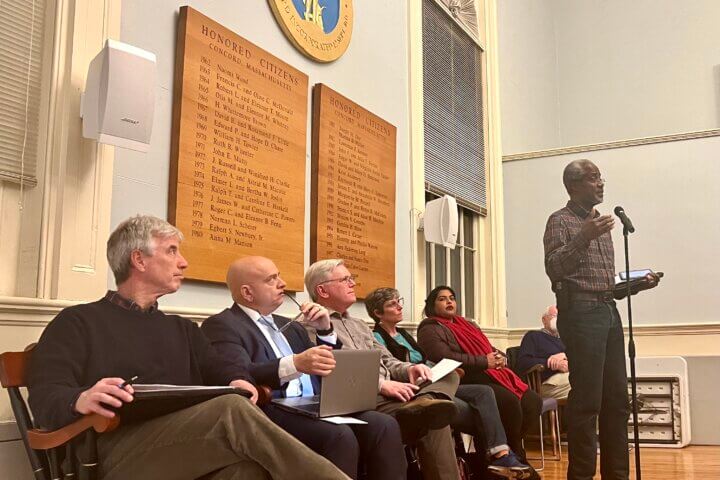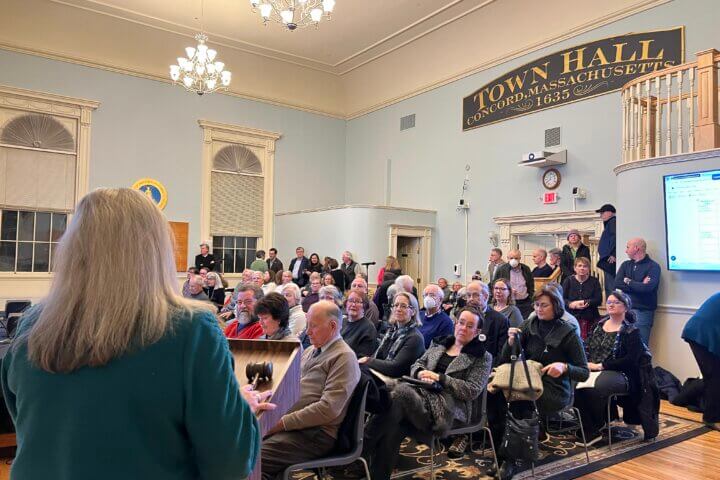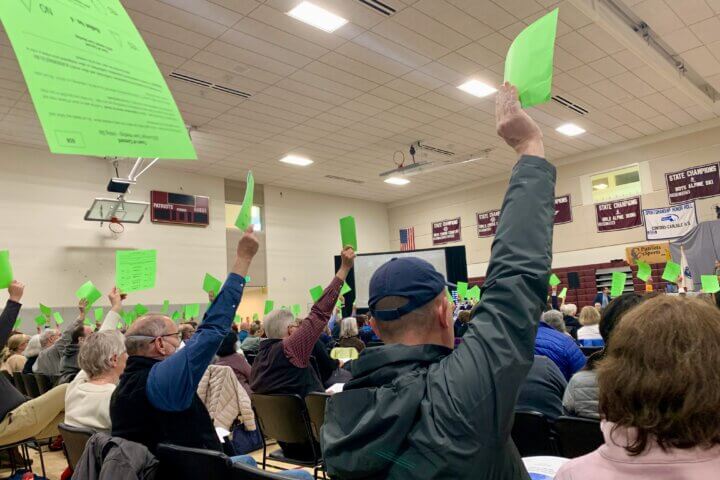By Abby Kaufman
Correspondent
In response to a 2021 state law, town officials are drafting a zoning overlay district for the two village centers to focus on allowing multi-family housing near Concord’s commuter rail stations.
The Planning Board has begun the process of engaging and educating town boards and the community on draft multi-family housing-friendly zoning changes as it works toward a December 2024 deadline to comply with the state law, known informally as the MBTA communities zoning act.
“The major thrust of the MBTA communities law is really multi-family zoning,” said Planning Board Chair Linda Miller. “It will allow multi-family housing to develop around the transit centers in Concord.’
Concord, with its Concord Center/Thoreau Depot and West Concord commuter rail stations, is considered an MBTA community, along with 176 other towns in eastern Massachusetts that have commuter rail, bus or subway stations in them.
The state’s 2021 zoning act requires towns designated as MBTA communities to have in place a zoning ordinance or bylaw that supports by-right zoning for multifamily housing by December 31, 2024, Towns designated as MBTA communities that fail to make zoning changes by the state’s deadline would not receive state funding, according to the zoning act.
The state’s compliance guidelines dictate that MBTA communities must have a zoning area of at least 50 acres with a minimum of 15 units per acre. The guidelines also state that the zoning area be within half a mile of commuter rail stations and have a capacity of 1,970 units. There cannot be restrictions on resident age or unit size, and towns cannot require more than 15 percent of units to be affordable, the guidelines say.
The Planning Board, in a memo to the Select Board on May 18, notes the best way to comply with the state requirements is to adopt a zoning overlay district, called the MBTA District, for the Concord and West Concord centers, which allows current zoning to remain.
Officials hope to bring a proposed zoning overlay district that’s compliant with the law to Town Meeting in spring 2024.
The memo also notes adopting the MBTA District is not a mandate to build, and developers will still need to go through the usual permitting process with town officials. Miller noted any future housing projects will have to be compliant with current zoning requirements, and go through the public vetting process.
“The zoning changes will only allow for multifamily housing, it won’t mandate it, it won’t provide for it,” said Miller.
As part of its outreach plan, the Planning Board is preparing to host a public information session titled “MBTA Communities Zoning 101” on its proposed MBTA District in late June. It also plans to engage a list of boards, committees, and community organizations. The draft zoning changes were outlined at the June 7 Housing Roundtable Discussion.
Stephan Bader, vice chair of the Concord Housing Authority, said the authority has a minor role in helping with the zoning changes, but is interested in multi-family and affordable housing in Concord and supports any efforts toward those goals.
“I think more and more people are recognizing that if they want to downsize, they don’t have a lot of choices,” Bader said. “There’s a natural base of people who want to make this happen.”
Miller noted that the draft MBTA District, spurred by state law, is different from the Thoreau Depot Business District rezoning proposal, which did not pass at the spring 2022 Town Meeting.
“This is completely different,” Miller said. “This multi-family zoning would allow a broader group of families to move into Concord, and provide more growth, and support the town center areas around our transit stations.”
Town officials plan to have a website, FAQ page, documents, and graphics on the proposed MBTA District live on its website this month.





